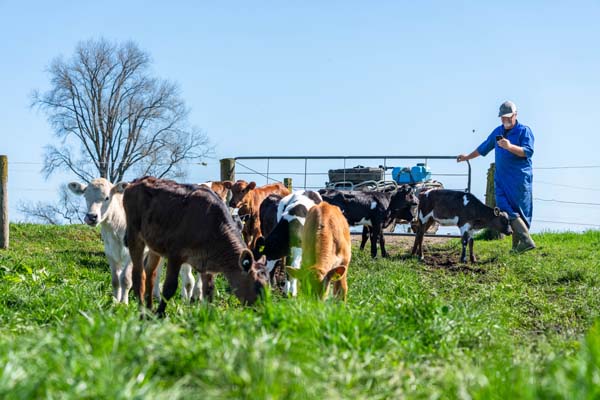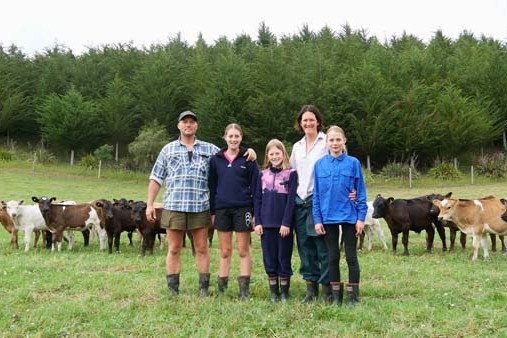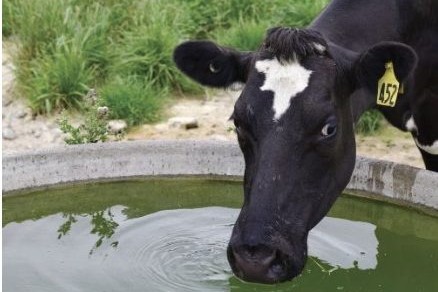Katie Mason
I should begin with the proviso that I am no expert on climate change or veganism, but like all of us I have an opinion on these emotive subjects. Just last month a judge in the United Kingdom ruled veganism is a ‘life philosophy’ and ‘important’ and ‘worthy’ of respect in democratic society under the Equality Act of 2010.
The confusing clamour in the news and media both locally and internationally prompts me to pose some questions about these growing trends; the environmental crisis we are facing and the influence this has on farming.
There is a plethora of information from many different sources on whether eating meat and drinking milk are:
- Environmentally sustainable
- Compatible with tackling climate change
- Healthy
- Animal-welfare friendly.
These, to me, are the main questions and there is little clarity. In general people are only interested in snippets of bite-sized information which they can read on the fly. As an industry we need to be united in defence of dairy. We also need to be smarter in the way we convey our messaging.
Dairy farmers have done a lot of work in recent years tackling water quality and protecting their land, even managing to reverse some considerable historic environmental damage through fencing and riparian planting. Artificial wetlands have also played a role in removing nitrogen leached into waterways. Our pasture-based systems are far more emissions-efficient than the global average, even considering carbon emissions from global transport.
Nevertheless, half of NZ’s greenhouse gases come from agriculture (about half from dairy alone) in the form of potently atmosphere-warming methane and nitrous oxide. Technology is struggling to keep up with demand for mitigating these (particularly methane) and more rapid technological advances will be necessary to reduce methane emissions.
Focused use of fertiliser and dropping stocking densities have also been proposed to reduce emissions, as well as a move towards increasing forestry land. International political pressure will continue to centre around elusive ‘net zero emissions’ targets, which means different things to different countries. It is clear though that the dairy industry must be consulted to develop outcome-based policies, rather than be dictated to by prescribed regulations.
Demand for animal protein in the developing world continues to grow. We should plan to meet this demand as sustainably as possible. If NZ doesn’t maintain its market position internationally, there will be an opportunity for competitors (with far less stringent environmental policies) to fill a gap in the market, which ultimately makes things worse for the planet.
Farming is part of our national identity. The United Nations Intergovernmental Panel on Climate Change (IPCC) has specified we should eat less red meat, but that we should also eat more locally produced food and waste less. To counter this, dairy industry stakeholders need to be much more vocal in their praise of our emissions-efficient, pasture-based systems in order to market product both locally and internationally.
Animal proteins provide a healthy, nutrient-dense alternative to plant proteins. Their bioavailability and complete nutritional value are unquestionable.
Nutritional deficiencies are also much more common on plant-based diets, especially when people are poorly educated on dietary requirements. Re-establishing public knowledge on basic human dietary requirements, especially in the young and the elderly is so important; particularly in regard to vitamin B12, iron and calcium requirements, which can so often be deficient in a vegan diet devoid of animal protein.
It should also be pointed out to consumers that expensive plant-based milk alternatives may also have very high environmental costs; requiring large quantities of water (irrigation) and high concentrations of pesticides in their production.
Farmers, vets and other rural professionals work hard to protect the international reputation of our happy, healthy, pasture-based national herd. We have high animal welfare standards, but the challenge will be to maintain these in the face of growing herd sizes and skilled labour shortages.
As well as high welfare standards, NZ rearing systems also allow cows to exhibit normal behaviour, in a way that year-round housed animals cannot. We should be proud of our pro-active approach to animal health and preventative medicine.
- Katie Mason is a Kiwi vet currently based in Scotland.




